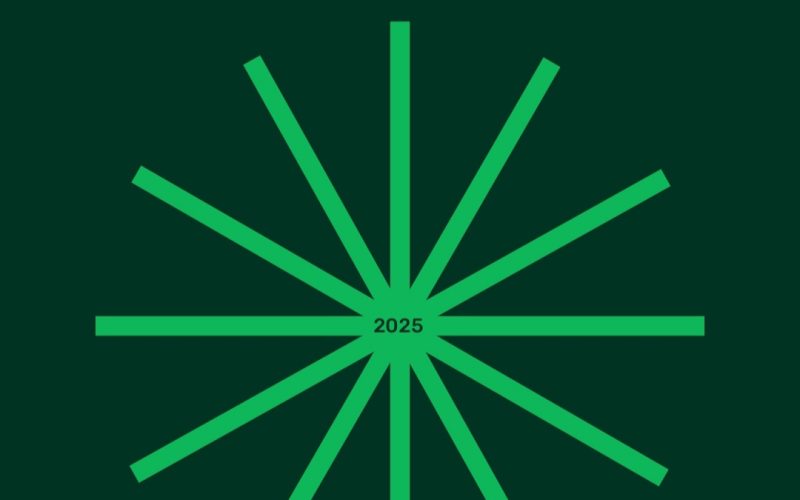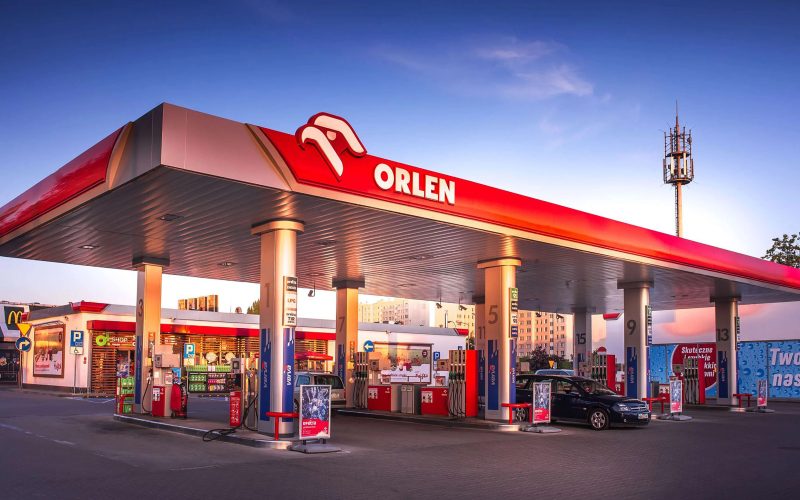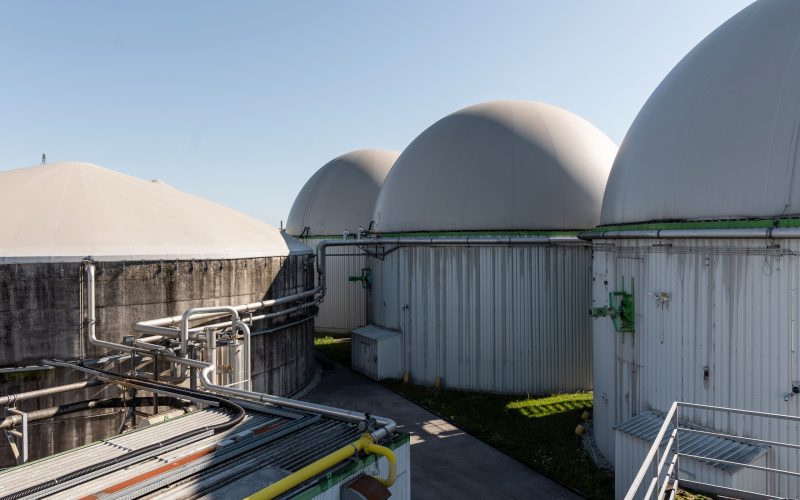Ukrainian delegation has visited Danish bioenergy plants
On June 18-19, 2025, during a technical tour of the Ukrainian bioenergy delegation to Denmark, representatives of Ukraine, together with their Danish colleagues, visited four bioenergy plants on the way to the cities of Esbjerg and Aarhus.
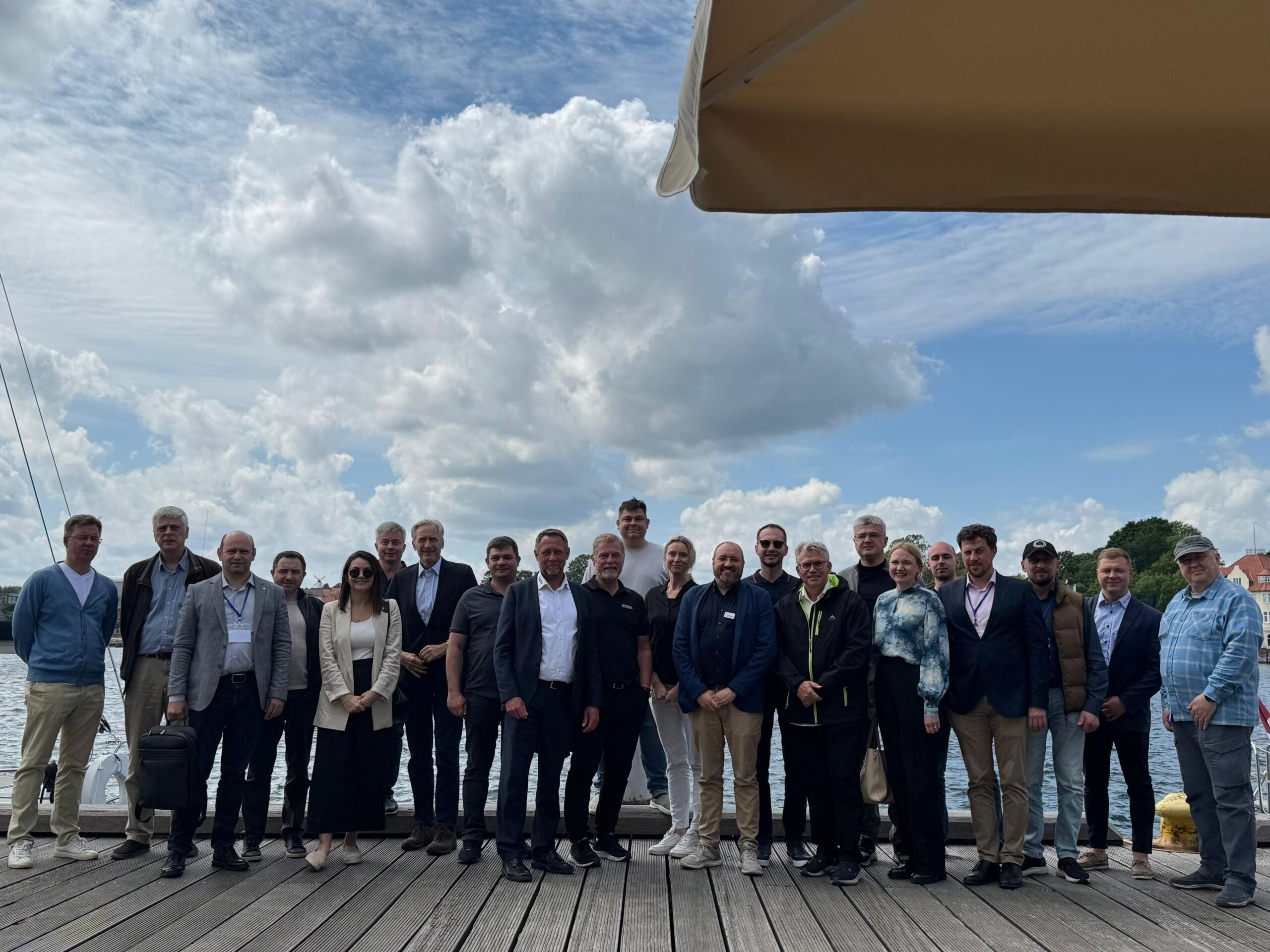
The visited facilities include::
- KVÆRS Biogas (biomethane plant);
- Storde Biogas (biomethane plant);
- Blaabjerg Biogas (biomethane plant);
- Lisbjerg cogeneration power plant.
Each of these facilities has demonstrated interesting approaches to biomass processing, biomethane production, and combined heat and power generation. Below is an overview of the functional features of the plants. Additional details and more photos from each facility will be published periodically next week on our Facebook page — don’t miss it!
KVÆRS Biogas
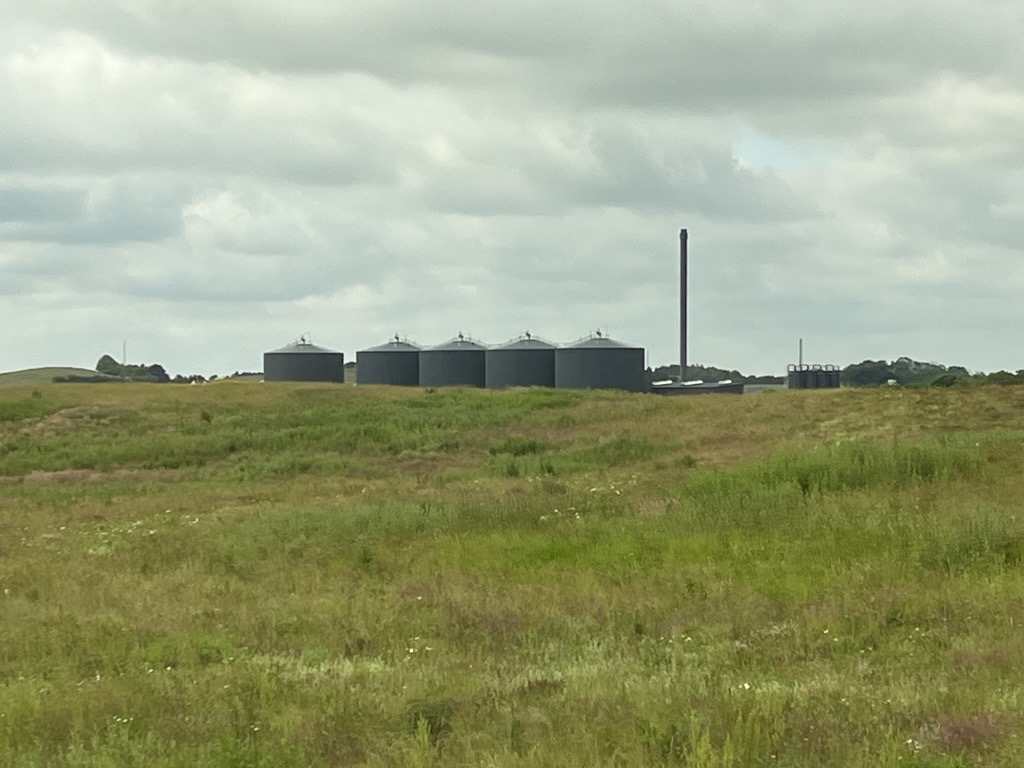
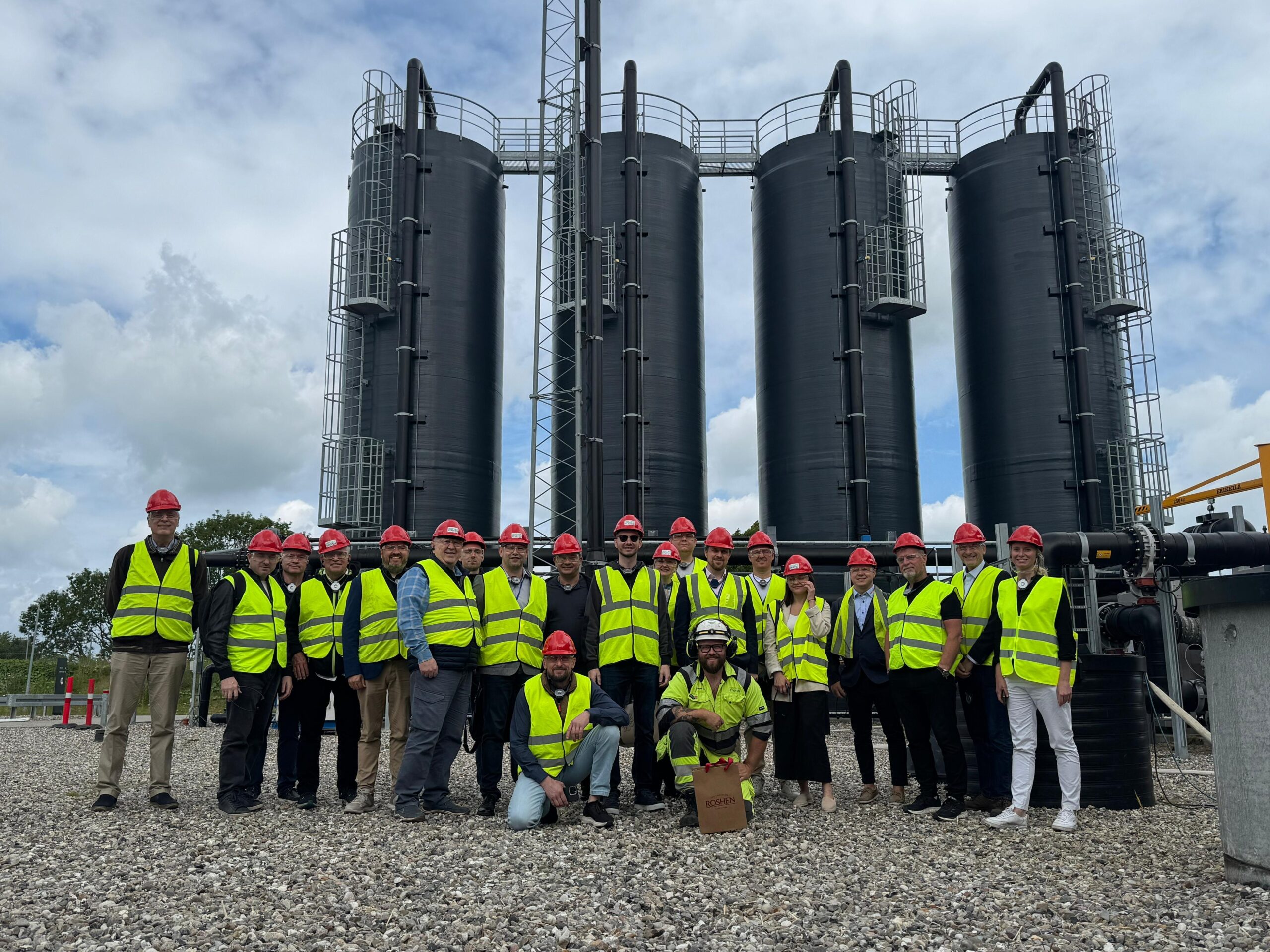
The first on the program on June 18 was a visit to Nature Energy’s biomethane plant, Kværs.
The plant produces up to 3,000 m3 of biomethane per hour (about 22 million m3 per year). The plant operates on purchased raw materials, including:
- liquid livestock waste (slurry);
- solid waste (straw after cattle bedding, almond processing waste, clean straw);
- slaughterhouse waste after preliminary pasteurization at 72°C for 1 hour.
Nature Energy owns 15 similar plants in Denmark and produces up to 40% of the country’s biomethane. It was recently bought by the oil and gas company Shell.
Storde Biogas
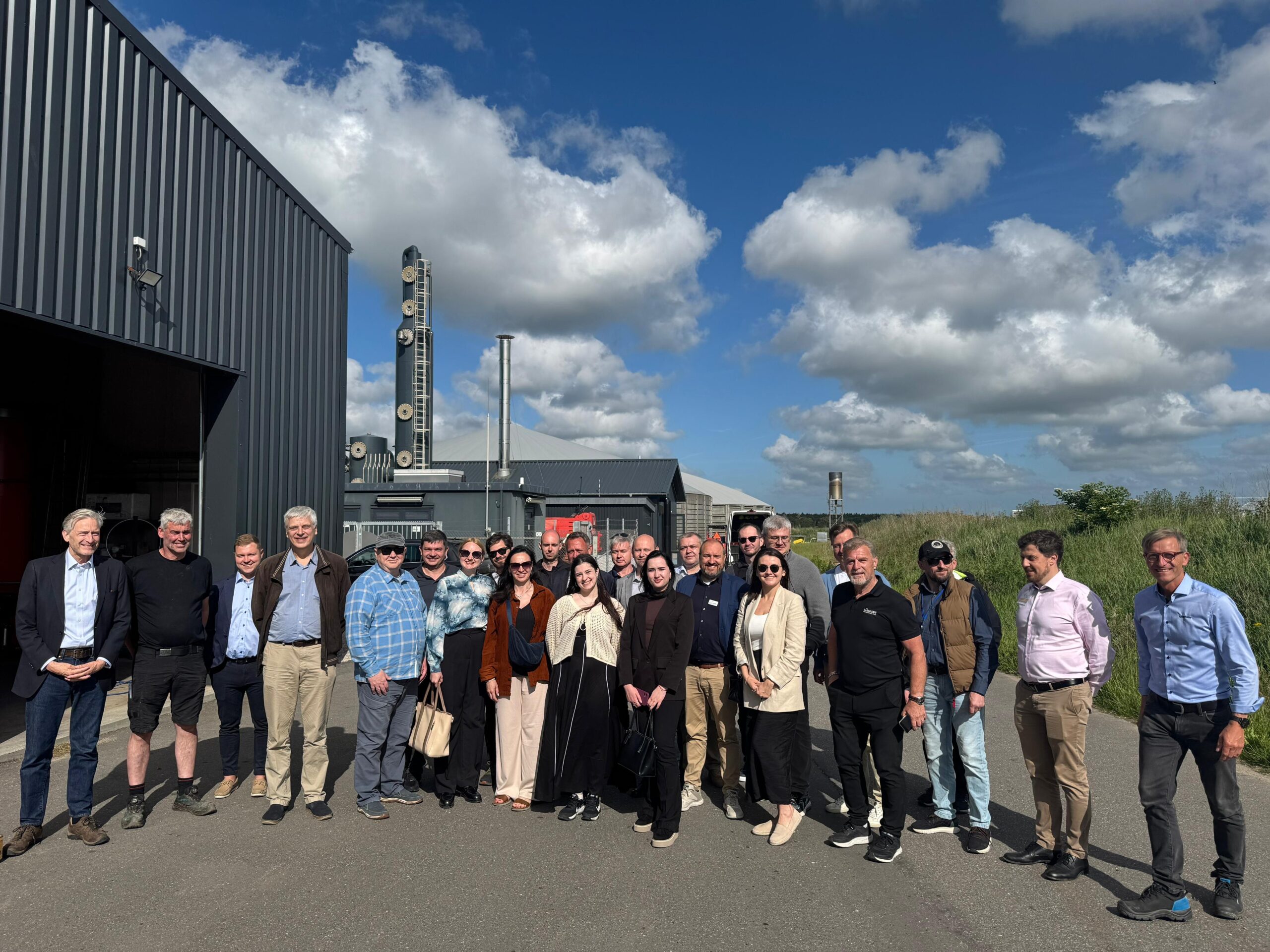
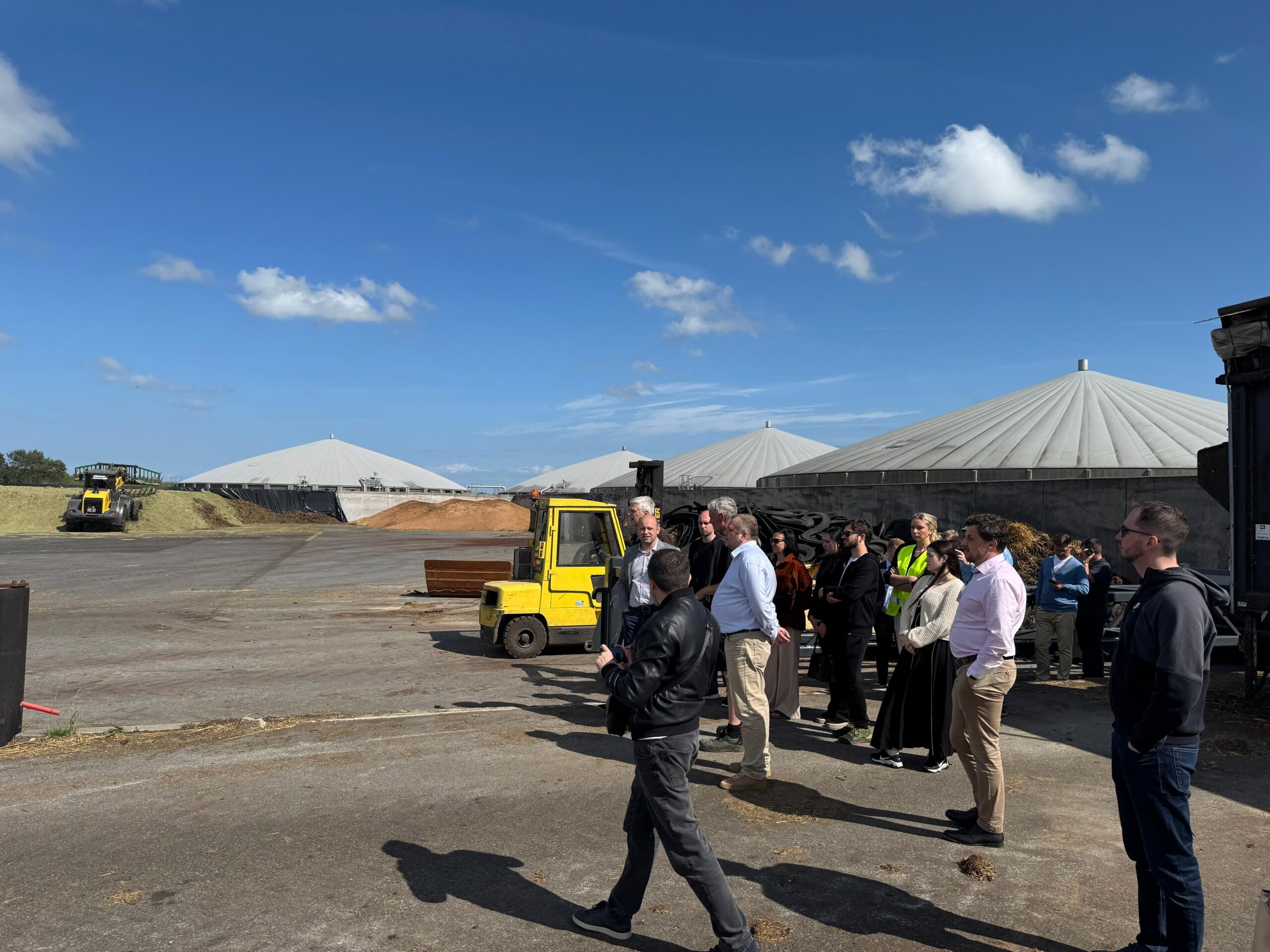
The second visit on June 18 took place at the biomethane plant Storde Biogas, which produces up to 1000 m3 of biomethane per hour (about 8.5 million m3/year).
The main raw material of the plant:
- cattle manure;
- cattle bedding with straw;
- grass;
- straw pellets imported from Poland.
The owners partially supply manure from their two farms, but additionally buy it from 23 other farms at a price of 1 Euro/m3 (transportation costs are also included). The plant uses an amine biogas upgrading system from Ammongas, a UABIO member company.
Blaabjerg Biogas
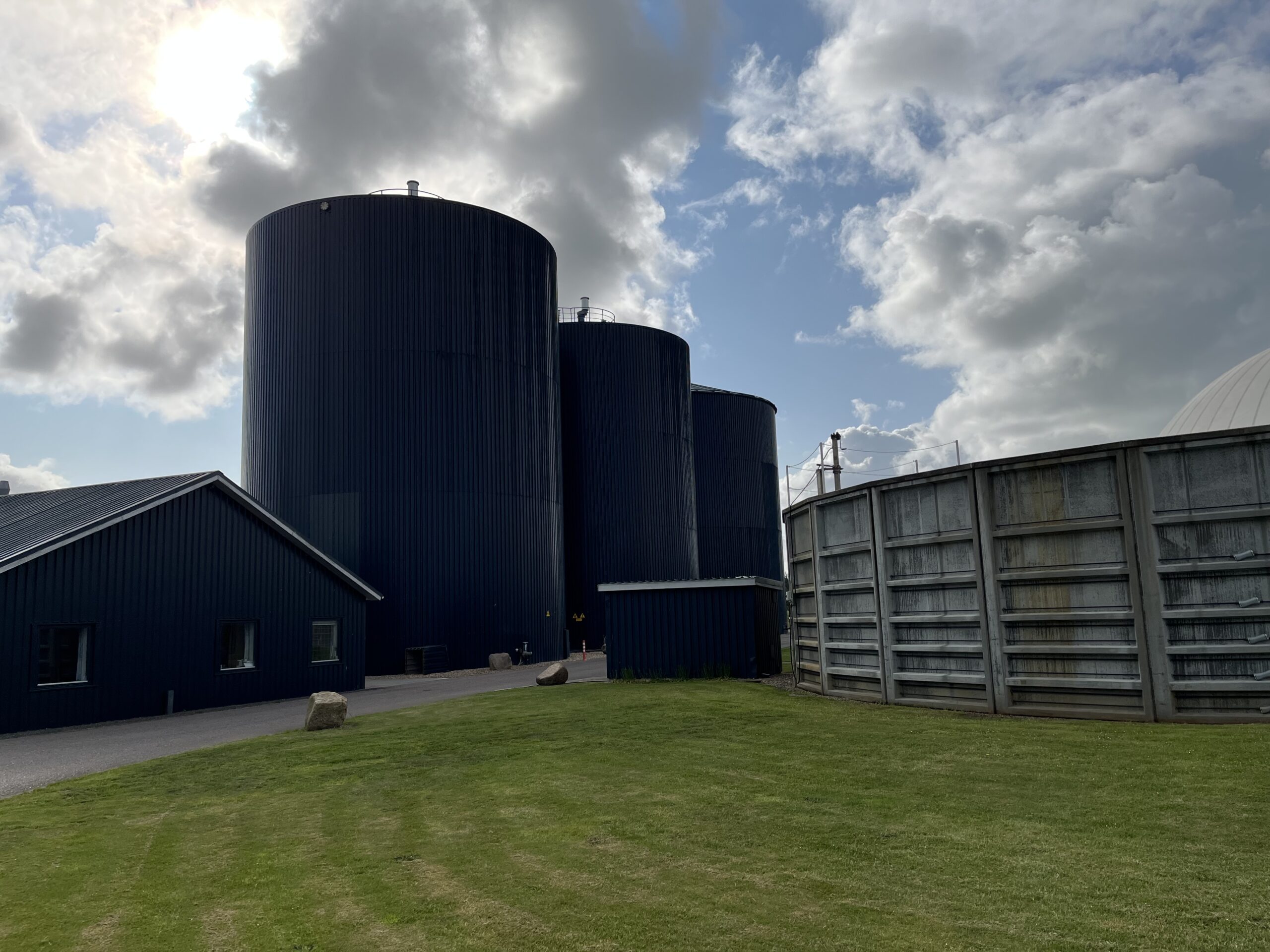
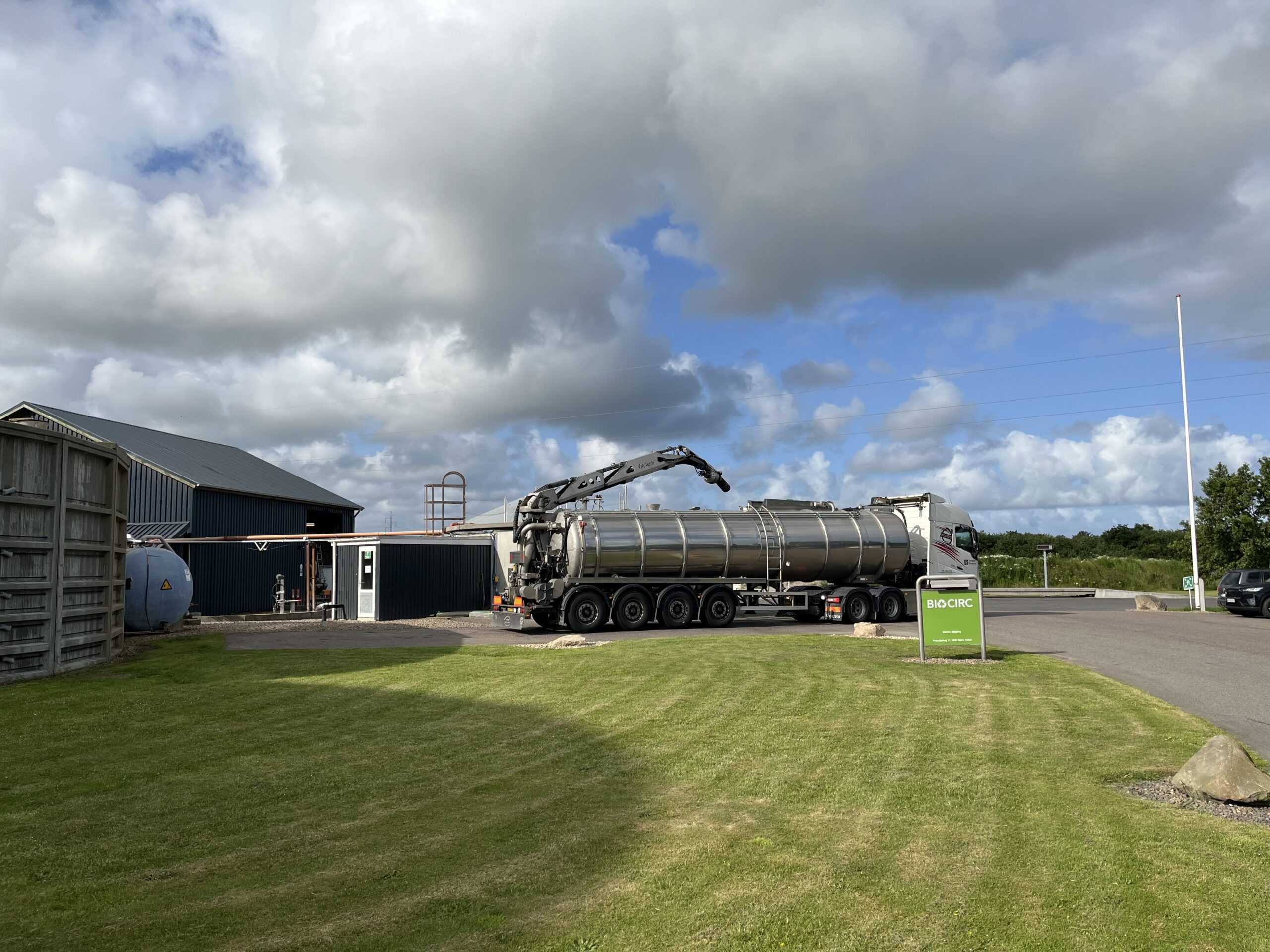
On June 19, the delegation visited the Blaabjerg Biogas biomethane plant with a capacity of 9 million m3/year. The plant has been operating since 1997.
Feedstock:
- 75% is slurry (mainly cattle) with a dry matter content of 7.5%;
- 25% — industrial waste, including slaughterhouse waste, which is pasteurized at 72°C for an hour. The feedstock is sourced from 35 farms within a 20 km radius.
The plant has an amine biogas upgrading system. The facility is also equipped with industrial-type reactors with a single vertical stirrer in the center. The temperature in the reactors is 52°C. Electricity is supplied from the grid.
Lisbjerg cogeneration power plant
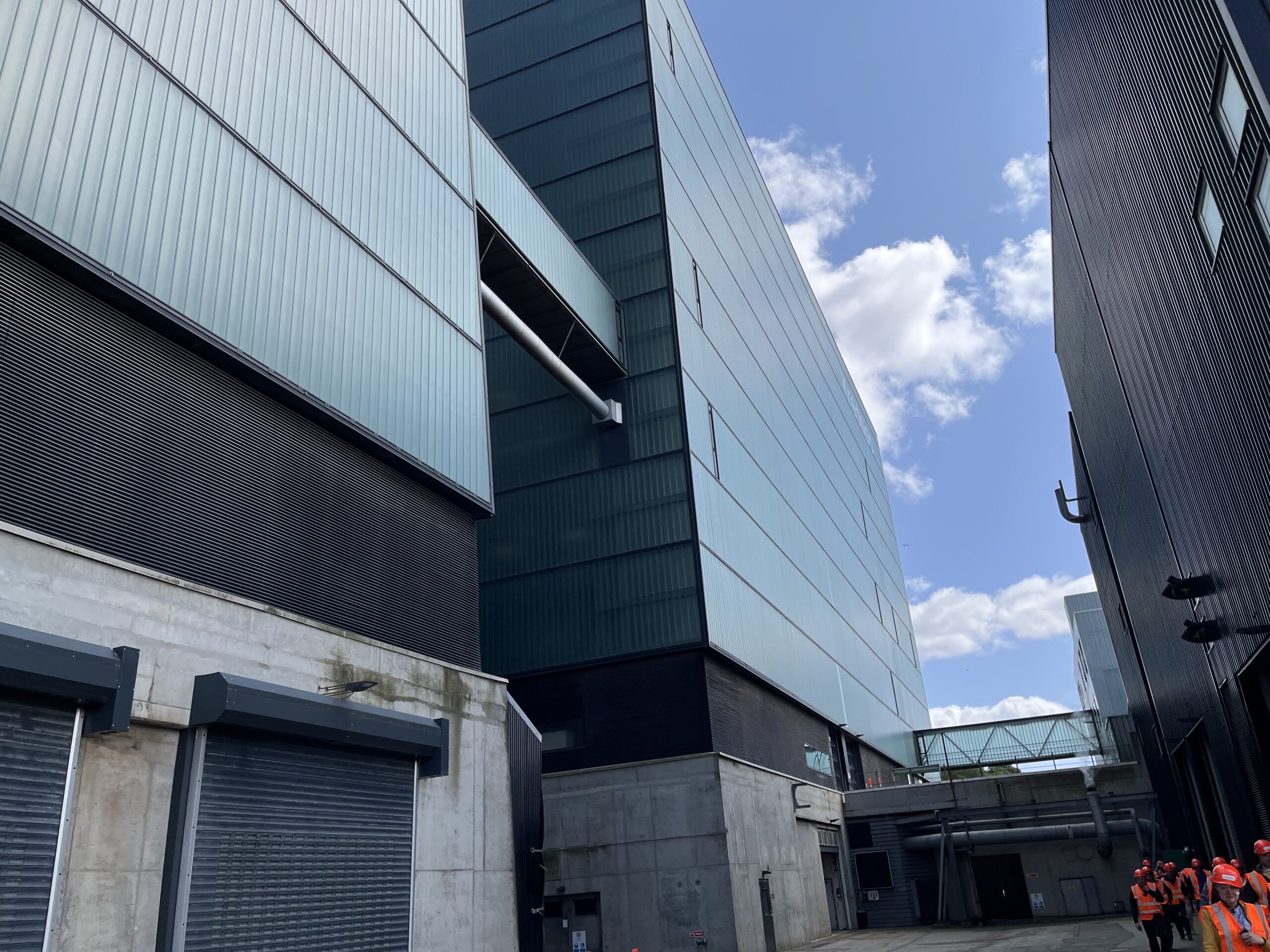
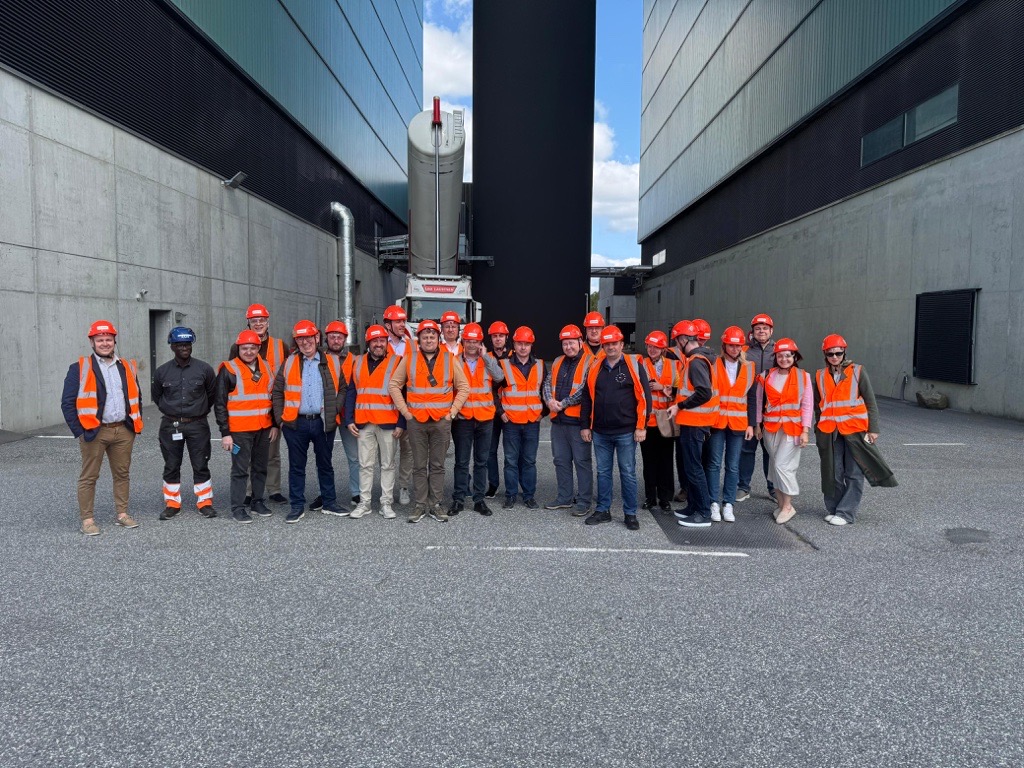
The second trip of the delegation on June 19 was to the Lisbjerg Cogeneration Power Plant (Aarhus CHP).
It has 4 boilers:
- one straw-fired boiler with a capacity of 35 MW of electricity and 78 MW of heat;
- three boilers fired by unsorted household waste of 25 MW each.
The delegation got a detailed look at the straw-fired boiler, which produces steam with a pressure of 110 bar and a temperature of 570°C. The straw is brought in bales weighing 500 kg (12 bales are unloaded atomically at a time). Humidity is up to 25%. The boiler from the Danish company Burneister and Wain can run on 100% straw or mix up to 50% wood chips. The heat, especially in summer, is supplied to the district heating system of Aarhus.
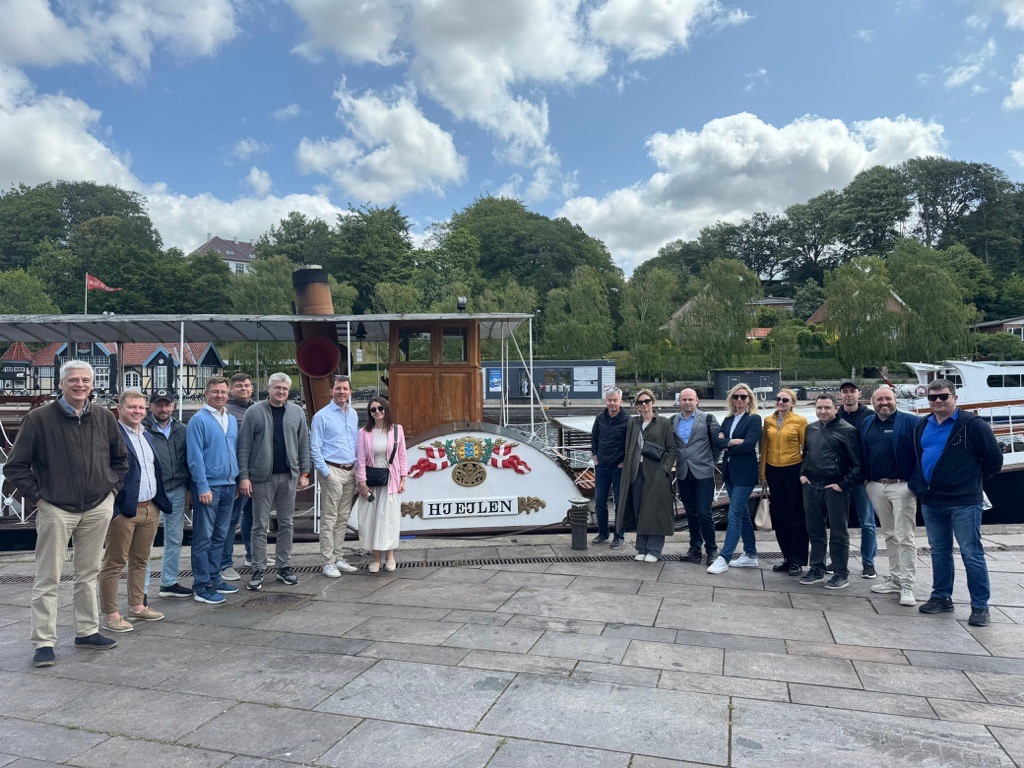
This visit is extremely valuable for Ukraine in the context of developing and scaling up its own bioenergy plants. Familiarization with efficient models of biomethane production, modern technological solutions and the organization of the plants’ operation allowed Ukrainian specialists to learn the best practices of the EU countries.
We would like to remind you that the trip was attended by members of the Bioenergy Association of Ukraine:
- Georgii Geletukha, Chairman of the Board of UABIO;
- Oleksandr Dombrovskyi, President of MHP Eco Energy;
- Oleh Riabov, Director of Gopak LLC, Gals Agro Group;
- Ivan Traksler, Regional Director of MHP Eco Energy;
- Volodymyr Ivakhiv, Director of Vitagro Energy.
During the seminar on the first day of the technical tour, Adomas Audickas, Director of MHP Verdant, also spoke, and presentations were made by other UABIO members — Ammongas and Goodvalley.
We express our sincere gratitude to the Embassy of the Kingdom of Denmark in Ukraine for organizing such a useful and interesting trip. We are looking forward to fruitful cooperation and are convinced that the Danish experience will definitely help Ukraine develop not only the biomethane industry, but also bioenergy in general.
Moreover, the delegation came across Ukrainian flags many times in Denmark. We are sincerely grateful to Denmark and its people for supporting Ukraine in these difficult times!
